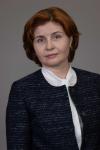References
- Efremova N. F. New learning quality management tools. Innovacii v professional'nom i professional'no-pedagogicheskom obrazovanii: materialy 20-j Vserossijskoj nauchno-prakticheskoj konferencii [Innovations in professional and vocational pedagogical education: proceedings of the 20th All-Russian Scientific and Practical Conference]. April 22‒23. Vol. 2. 2015. Yekaterinburg, 2015. P. 78‒81. (In Russ.)
- Efremova N. F. Evolution and logistics: new tools in quality management of education. Fundamental'nye issledovaniya [Fundamental Research]. 2014. No. 8-6. P. 1455‒1459. (In Russ.)
- Permyakov O. E. Improving the quality system of an educational institution of higher professional education in the context of ENQA requirements. Universitetskoe upravlenie: praktika i analiz [University management: practice and analysis]. 2007. No. 3. P. 97‒101. (In Russ.)
- Selezneva N. A. The problem of implementing a competence-based approach to educational outcomes. Vysshee obrazovanie v Rossii [Higher education in Russia]. 2009. No. 8. P. 3‒9. (In Russ.)
- Subetto A. I. Conceptual and theoretical foundations of solving the problem of quality of education in Russia. Sibirskij pedagogicheskij zhurnal [Siberian Pedagogical Journal]. 2008. No. 1. P. 75‒87. (In Russ.)
- Tatur Yu.G. How to increase the objectivity of measuring and evaluating educational outcomes Vysshee obrazovanie v Rossii [Higher education in Russia]. 2010. No. 5. P. 22‒31. (In Russ.)
- Shadrikov V. D. Quality management of education. Nauchnye osnovy razvitiya obrazovaniya v XXI veke: 105 vystuplenij chlenov Rossijskoj akademii obrazovaniya v SPbGUP [Scientific foundations of education development in the 21st century: 105 speeches by members of the Russian Academy of Education at St. Petersburg State University]. Saint-Petersburg, 2011. P. 525‒530. (In Russ.)
- Blinov V. I. Evolution of the axiological foundations of the theory and practice of education in Russia (XVIII – early XX century). Moscow, 2002. 232 p. (In Russ.)
- Nikandrov N. D. Education of values: the Russian version. Moscow, 1996. 99 p. (In Russ.)
- Bim-Bad B. M. Anthropological foundations of the theory and practice of modern education: essays on problems and methods of their solution. Moscow, 1994. 35 p. (In Russ.)
- Axiological priorities in the field of education and upbringing (history and modernity): Proceedings of the XVIII session of the Scientific Council on the History of Education and Upbringing, October 1997. Moscow, 1997. 370 p. (In Russ.)
- Shiyanov E. N. Axiological foundations of the education process. Pedagogika: nauchno-teoreticheskij zhurnal [Pedagogy: a scientific and theoretical journal]. 2007. No. 10. Р. 33‒37. (In Russ.)
- Baydenko V. I. Competencies in vocational education: towards the development of a competence‒based approach. Vysshee obrazovanie v Rossii [Higher education in Russia]. 2004. No. 11. Р. 3‒13. (In Russ.)
- Baydenko V. I. New standards of higher education: methodological aspects. Vysshee obrazovanie segodnya [Higher education today]. 2007. No. 5. Р. 4‒9. (In Russ.)
- Blinov V. I. Pedagogical potential of the modular competence approach in the practice of modernization of vocational education. Professional'noe obrazovanie v Rossii i za rubezhom [Vocational education in Russia and abroad]. 2011. No. 1 (3). Р. 9‒11. (In Russ.)
- Bolotov V. A. Pedagogical education in Russia in the context of social change: principles, technologies, management. Volgograd, 2001. 290 p. (In Russ.)
- Bordovsky G. A., Nesterov A. A., Trapitsyn S. Y. Quality management of the educational process. Saint-Petersburg, 2001. 359 p. (In Russ.)
- Leibovich A. N. National qualifications system: is a reboot required? Professional'noe obrazovanie. Stolica [Professional education. Capital]. 2014. No. 3. Р. 12‒17. (In Russ.)
- Kislyakova E. V. A qualimetric approach to building a quality assessment system for online educational programs. Nauchno-metodicheskij elektronnyj zhurnal «Koncept» [Scientific and methodological electronic journal «Concept»]. 2024. No. 9. Р. 101‒102. (In Russ.)
- Gritsova O. A., Thyssen E. V. Assessment of the quality of online learning in the higher education system in the regions. Ekonomika regiona [The economy of the region]. 2021. Vol. 17. No. 3. Р. 929‒943. (In Russ.)
- Steblov O. A., Ledyansky V. A. Assessment of the quality of the educational process based on a multifactorial approach. Sovet rektorov [Council of Rectors]. 2014. No. 10. Р. 55‒61. (In Russ.)
- Matveeva I. A. Humanitarian expertise as an assessment of the quality of the educational process in higher education. Sovremennaya nauka: aktual'nye problemy teorii i praktiki. Seriya: Gumanitarnye nauki [Modern science: actual problems of theory and practice. Series: Humanities]. 2021. No. 2. Р. 84‒86. (In Russ.)
- Zhurko V. I. Methodological foundations for assessing the quality of education in higher education. Izvestiya Rossijskogo gosudarstvennogo pedagogicheskogo universiteta im. A. I. Gercena [Proceedings of the Russian State Pedagogical University named after A. I. Herzen]. 2010. No. 128. Р. 136‒146. (In Russ.)
- Aydinyan A. R., Tsvetkova O. L. Methodology for assessing the quality of university students' education using a neuro-fuzzy approach. Programmnye produkty i sistemy [Software products and systems]. 2016. No. 4. Р. 189‒193. (In Russ.)
- Markin Yu. P., Oxyukovskaya V. N. Comprehensive analysis of the activities of a non-governmental university and assessment of teaching quality. Ekonomicheskij analiz: teoriya i praktika [Economic analysis: theory and practice]. 2005. No. 20 (53). Р. 17‒23. (In Russ.)
- Kislyakova Yu. G., Mokhnachev S. A., Sachkova O. A., Simakova U. F. The quality of education is an object of comprehensive monitoring. Fundamental'nye issledovaniya [Fundamental research]. 2014. No. 12-3. Р. 567‒571. (In Russ.)
- Shaidullin A. M. Process approach in the quality management system of an organization: advantages and recommendations for implementation. Upravlenie ustojchivym razvitiem [Sustainable development management]. 2018. No. 6 (19). Р. 29‒34. (In Russ.)
- Steblov O. A., Ledyansky V. A. Assessment of the quality of the educational process based on a multifactorial approach. Sovet rektorov [Council of Rectors]. 2014. No. 10. Р. 58‒60. (In Russ.)
- Strelkova I. B., Sidorik V. V. Qualimetry of the educational process in the system of additional professional education for adults: a model approach. Nauchnye i tekhnicheskie biblioteki [Scientific and technical libraries]. 2015. No. 2. Р. 25‒32. (In Russ.)
- Melnikov Yu. B., Melnikova Yu. Y., Melnikova N.V. On the adequacy of the model. Vestnik Tomskogo pedagogicheskogo universiteta. Seriya: Pedagogika (teoriya i metodika obucheniya) [Bulletin of Tomsk Pedagogical University. Series: Pedagogy (theory and teaching methods)]. 2006. No. 3 (54). Р. 11‒15. (In Russ.)
- Kulikova N. Yu., Maslova O. A., Ponomareva Yu. S. Model of using artificial intelligence systems to assess the quality of competence formation of university students. Mir nauki. Pedagogika i psihologiya [The world of science. Pedagogy and psychology]. 2021. Vol. 9. No. 5. Р. 21‒27. (In Russ.)
- Trubcheninova I. A., Gazizov T. R. The practice of assessing the quality of master's degree programs. Vestnik Tomskogo gosudarstvennogo pedagogicheskogo universiteta [Bulletin of Tomsk State Pedagogical University]. 2019. No. 8 (205). Р. 177‒184. (In Russ.)
- Taranukha S. N., Kuzmin A. A., Savelyeva M. N. Qualimetric model of competence formation for graduates of basic educational programs. Informatika i obrazovanie [Informatics and Education]. 2020. No. 5 (314). Р. 24‒32. (In Russ.)
- Akhmetshina G. F. Modeling of control, evaluation and reflexive activity of a teacher. Vestnik Samarskogo universiteta. Istoriya, pedagogika, filologiya [Bulletin of Samara University. History, pedagogy, philology]. 2022. Vol. 28. No. 2. Р. 93‒99. (In Russ.)
- Pleshakova N. L., Novikova V. V. Modern quality of education: components of the guidelines for the future. Vestnik GOU DPO TO «IPK i PPRO TO». Tul'skoe obrazovatel'noe prostranstvo [Bulletin of the State Educational Institution of Higher Professional Education «IPK and PPRO TO». Tula educational space]. 2023. No. 3-2. Р. 56‒60. (In Russ.)
- Gruenko S. E., Fadeeva O. A. On the issue of developing criteria and quality indicators for modern higher education. Vestnik Sibirskogo instituta biznesa i informacionnyh tekhnologij [Bulletin of the Siberian Institute of Business and Information Technologies]. 2017. No. 4 (24). Р. 124‒129. (In Russ.)
- Lopanova E. V. Methodological aspects of criterion assessment in higher education. Vestnik Orenburgskogo gosudarstvennogo universiteta [Bulletin of Orenburg State University]. 2023. No. 4 (240). Р. 185‒191. (In Russ.)
- Sokolova I. Y. Assessment and psychological and pedagogical conditions for ensuring the quality of the educational process, the quality of training specialists. Fundamental'nye issledovaniya [Fundamental research]. 2014. No. 11-5. Р. 1172‒1178. (In Russ.)














